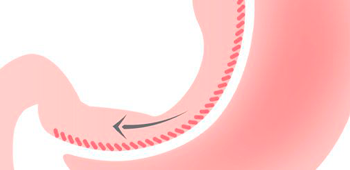The World Health Organization defines health as a state of complete physical, mental, and social well-being, and not merely the absence of disease or infirmity. To achieve this state, that eludes so many millions of people in the world, health professionals of all areas must assume the responsibilities that this definition implies.
It is a fact that very few doctors receive thorough training on how they should relate to their patients, even though it is well known that the doctor-patient relationship has an important therapeutic function. Several studies indicate that a greater awareness on the part of health providers about the importance of connecting with the patient would motivate them to make the development of this relationship a priority.
A therapeutic relationship between physician and patient should evolve within the context of a human experience; one in which a patient’s trust and comfort are of primary importance. The cure for the patient’s condition does not start with diagnosis, medical prescription, or surgery; it starts with the very first consultation, which establishes the basis for the relationship that it will define it all.
Some of the most important features of the doctor-patient relationship are:
– Fundamentally, it should be a human experience.
– The doctor should develop his or her own emotional intelligence, which helps create a good connection with the patient.
– Patients should be treated professionally and in a timely manner; their time is as valuable the physician’s.
– The doctor and his or her staff must use modern tools and platforms that improve patient experience and optimize the administration of services provided by the doctor.
– The doctor should be prepared with adequate literature to help patients better understand their diagnosis, treatment or condition.
– There should be an allotted time to talk about any side effects and contraindications or risks any treatment or surgery might have.
– The doctor, staff and clinic/office should promote a safe environment, so that patients can reveal their concerns and symptoms without feeling embarrassed or self-conscious.
The doctor’s appointment is the corner stone of health care and its function is not limited to the collection of data, it is also the time to establish a connection between the doctor and the patient. While doctors are not there to “make nice” with patients, it is essential that there be a friendly atmosphere that fosters open communication and allows the doctor to appreciate the bio-psychological-social characteristics of the patient. Studies also indicate that when a patient has the confidence to ask questions and talk openly with their doctor, they follow instructions more closely and their response to treatment improves.
On the other hand, there is no greater enemy in doctor-patient communication than anxiety. Many patients report that medical instructions seem incomprehensible to them when their anxiety level is high; confirming the importance of the connection between the two parties.
When it comes to obese patients, the issues that are addressed in consultations are usually charged with emotion, guilt and frustration; patients often become emotionally drained and come to appointments convinced that nobody understands them. A bariatric surgeon can potentially transform the life of an obese patient and help him or her achieve a lifestyle that might have seemed unattainable before. But given that bariatric surgery is more successful in the context of a comprehensive program, the doctor-patient relationship becomes even more relevant.
At LIMARP we try to make sure our patients have a positive experience all around. Our status as a Center of Excellence not only refers to the training of our staff and modernity of our equipment; it also speaks of the quality of care we provide and the atmosphere of trust which we have strived to create.
For more information call LIMARP International Center of Excellence for Obesity Toll Free at (866)585 3298 from US and Canada, for the rest of the world call +52 (664) 686 2542 or fill out a contact form here to receive a free evaluation.


